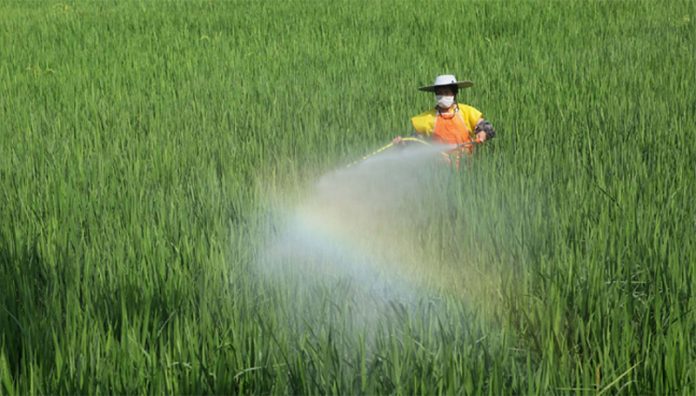The Supreme Court’s recent notice to the Central Government regarding the rampant use of pesticides and other chemicals on crops and food items is a crucial step in addressing a long-neglected issue that threatens public health. The petition brings to the fore the grave implications of pesticide overuse and the alleged failure of regulatory bodies like the Food Safety and Standards Authority of India (FSSAI) to enforce safety standards. Pesticides, intended to protect crops from pests and diseases, have become a double-edged sword. While they play a significant role in boosting agricultural productivity, their overuse and misuse have severe health consequences. The petition points out that the consumption of pesticide-laden food is a leading cause of cancer and other fatal ailments. This is supported by alarming statistics: during 2016-17, out of 78,340 food samples tested, 18,325 were found adulterated or misbranded, leading to over 13,000 legal cases and 1,605 convictions. Moreover, data from the Directorate of Plant Protection, Quarantine & Storage reveals that 161 people died due to pesticide poisoning in 2020-21 across three states alone. These figures likely under-represent the true scale of the problem, as they do not account for chronic illnesses linked to long-term pesticide exposure.
Central to the issue is the alleged failure of the FSSAI to effectively regulate and monitor pesticide use. The FSSAI is mandated under Section 16 of the Food Safety and Standards Act, 2006, to ensure food safety and protect public health. However, the petition highlights that the FSSAI lacks comprehensive data on food sample testing and pesticide residues, reflecting a significant gap in regulatory oversight. The absence of rigorous monitoring and enforcement mechanisms allows the overuse of pesticides to persist unchecked.
Pesticides contain toxic substances that can cause a range of health problems. Acute exposure can lead to symptoms like nausea, headaches, dizziness, and, in severe cases, respiratory distress or death. Chronic exposure, even at low levels, is linked to more insidious health issues, including various cancers, neurological disorders, reproductive problems, and endocrine disruption. Vulnerable populations, such as children and pregnant women, are particularly at risk. Pesticides can interfere with developmental processes, leading to long-term cognitive and physical impairments. The broader public health impact is substantial, with increased healthcare costs and loss of productivity due to pesticide-related illnesses.
Addressing the pesticide problem requires a multi-faceted approach. There must be stringent enforcement of existing regulations. The FSSAI and other regulatory bodies need to be proactive in carrying out comprehensive monitoring and imposing penalties for violations. This includes regular and random testing of food samples for pesticide residues and making the results publicly accessible to ensure transparency and accountability. Moreover, there should be a concerted effort to promote sustainable agricultural practices. Integrated Pest Management (IPM) strategies, which emphasise the use of biological controls, crop rotation, and organic farming, can significantly reduce the reliance on chemical pesticides. Incentives for farmers to adopt these practices, coupled with education and training programmes, are essential to facilitating this transition. Advances in agricultural technology offer promising solutions to reduce pesticide use. Precision farming techniques, which utilise data and sensors to apply pesticides more efficiently, can minimise the amount of chemicals needed. Bio-pesticides, derived from natural sources, offer a safer alternative to synthetic chemicals and are increasingly being developed and deployed.
Research institutions and agricultural universities must prioritise the development of such technologies and collaborate with policymakers and industry stakeholders to ensure their widespread adoption. Public and private investment in research is critical to accelerating these innovations and making them accessible to farmers. The Supreme Court’s intervention is a timely and necessary move to address the pressing issue of pesticide overuse in India. The Government’s response to this plea should be swift and decisive, setting in motion comprehensive reforms that safeguard the health of the nation and ensure the sustainability of its agricultural sector.
Trending Now
E-Paper


